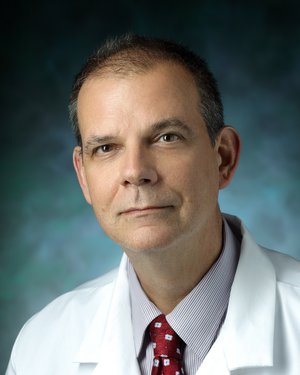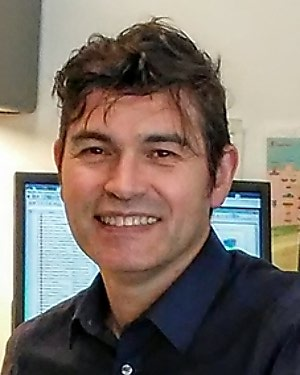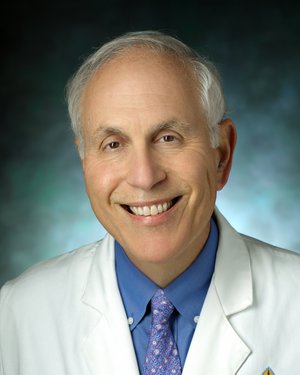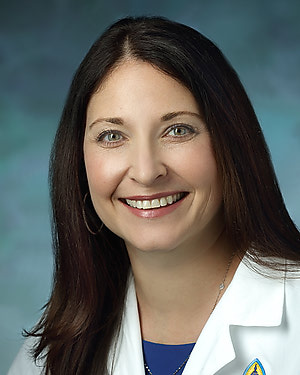Research Lab Results
-
Arturo Casadevall Lab
The Arturo Casadevall Lab uses a multidisciplinary approach to explore two key topics within microbiology and immunology: how microbes cause disease and how hosts can protect themselves against those microbes. Much of our research focuses on the fungus Cryptococcus neoformans, which frequently causes lung infections in people with impaired immunity. We also work with the microorganism Bacillus anthracis, a bacterium that causes anthrax and is frequently used in biological warfare. Our goal is to devise antibody-based countermeasures to protect against this and other similar threats.
-
Photini Sinnis Lab
Research in the Photini Sinnis Lab explores the fundamental biology of the pre-erythrocytic stages of malaria. Our team is focused on the sporozoite stage of Plasmodium, which is the infective stage of the malaria parasite, and the liver stages into which they develop. We use classic biochemistry, mutational analysis, and in vitro and in vivo assays to better understand the molecular interactions between the parasite and its mosquito and mammalian hosts. Our goal is to translate our findings to help develop treatments and a vaccine that target the malaria parasite.
-
David Sullivan Lab
Research in the David Sullivan Lab focuses on malaria, including its diagnosis, treatment, molecular biology as it relates to iron, and pathology as it relates to severe anemia. We test and develop new malaria diagnostics — from real-time polymerase chain reaction (PCR) to novel urine and saliva detection platforms. This includes the adaptation of immuno-PCR (antibody coupled to DNA for PCR detection) to malaria and a lead blood stage drug that contains a quinine derivative used to treat malaria in the 1930s.
-
Natalie West Lab
The Natalie West Lab collaborates with Noah Lechtzin’s lab to study cystic fibrosis, with a particular focus on new resistant bacteria and their effect on the lung function of people with cystic fibrosis. -
Franck Housseau Lab
The Franck Housseau Lab focuses on the role of the microbiome in colorectal tumorigenesis and on developing a better understanding of the tumor immune microenvironment. The lab is currently working to define the biomarkers of a pre-existing antitumor immune response in metastatic colorectal cancer to define a population of patients eligible for checkpoint blockade therapies.
-
HPTN (HIV Prevention Trials Network) Network Lab
HPTN (HIV Prevention Trials Network) Network Laboratory (NL) is responsible for collecting, testing and reporting results from biological samples; assisting in the development and quality assurance assessment of local laboratory capacity at the Clinical Trials Units (CTUs) participating in HPTN clinical trials (www.hptn.org); and identifying and implementing state-of-the-art assays and technologies to advance the scientific agenda of the Network. -
Sean T. Prigge Lab
Current research in the Sean T. Prigge Lab explores the biochemical pathways found in the apicoplast, an essential organelle found in malaria parasites, using a combination of cell biology and genetic, biophysical and biochemical techniques. We are particularly focused on the pathways used for the biosynthesis and modification of fatty acids and associated enzyme cofactors, including pantothenate, lipoic acid, biotin and iron-sulfur clusters. We want to better understand how the cofactors are acquired and used, and whether they are essential for the growth of blood-stage malaria parasites.
-
Jonathan Zenilman Lab
The Jonathan Zenilman lab conducts research related to sexually transmitted diseases (STDs). We are working to develop biological markers for sexual behavior to use in other research. The lab studies sexual risk behaviors in highly vulnerable populations and studies datasets from the Baltimore City Health Department to understand STD trends and behaviors. Additionally, we study nosocomial infections at Johns Hopkins Bayview Medical Center, with a focus on developing an antimicrobial control program. We also conduct clinical research related to the natural history and microbiology of chronic wounds in the outpatient setting.


